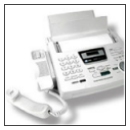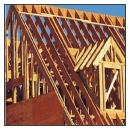Code of Practice
Safe Local Trades builders work to a strict code of practice which they commit to every year when they renew their membership. The code of practice covers their relationship with customers throughout the building process.
Before work begins
Your Safe Local Trades builder will try to make sure that you have all the professional advice you need on the project if it is a large or complex job. This may involve the support of architects, surveyors or other specialist professionals.
An Safe Local Trades builder will never quote on a project for which they have insufficient time or are otherwise unsuited to undertake.
They will make sure that they have sufficient public liability and employer’s liability insurance cover for the contract.
Their quotation will state the following:
the price what is included in the price what form of agreement will be used between you (For instance, the Crystal Mark approved Safe Local Trades Plain English Contracts, which are clear and unambiguous).
Whilst work is in progress:
Your builder will proceed with the work according to the agreement between you, and will brief you regularly on progress. Your builder will give notices to the Building Control Authority, if they are required, and if this is agreed in your contract with them. If there are unavoidable problems or delays you will be informed of these as early as possible. Your builder will supply you with samples of materials and fittings for prior approval, if required. If there are changes to the work specified or extra costs, these will be confirmed in writing and agreed with you before such work begins. Your builder, their employees and subcontractors will at all times treat you and your property with respect and ensure that the working site remains a safe and healthy environment. Your builder will take responsibility for any subcontractors that he engages and for their work.
When the work is complete:
Your builder will leave the site clean and tidy and ready for use and dispose any waste properly. Any relevant instructions and guarantees will be handed over to you and you will be properly briefed about any relevant maintenance or operating issues. A date will be arranged for your builder to return and complete any defects which may have arisen during the first few months.
...plus a few things you can do to help your builder deliver a first class job
Help yourself and your Safe Local Trades builder by following these simple guidelines - to make sure that you will both be proud of the finished result.
Before work begins:
If necessary get competitive quotes from more than one builder and make sure they understand exactly what you want done. Ensure that you have sufficient funds available when needed. Choose a builder with a proven track record in the kind of work you’re having done. Use an approved form of contract such as one of the Safe Local Trades Plain English Contracts. Sign before work begins, or alternatively, agree a daywork rate subject to normal terms and conditions (this can be a suitable arrangement for emergency or minor works.) Make sure that you understand the quotation and agreement and that it is signed and accepted by both you and your builder. Ensure that the site is cleared and ready for the builder to start work. Make sure your builder has unhindered access to the site.
Whilst work is in progress:
Develop a good working relationship with your builder. If you have any concerns about the work, discuss them right away. Keep extras to a minimum and instruct your builder in writing about all variations to the specified work. Choose materials and finishes carefully and approve them before use. Make any agreed stage payments or reasonable up-front payments promptly.
When the work is complete:
Report any urgent defects to your builder promptly and in writing. List any non-urgent defects for your builder to correct at an agreed time. Settle the final account promptly.
What to do if you and your builder have disagreement
First, try and resolve the disagreement by discussion and by checking your agreement or contract. If you are not able to sort things out between yourselves, contact your local Safe Local Trades office for advice. Safe Local Trades members agree to follow our Complaints and Disputes Resolution Procedure.









